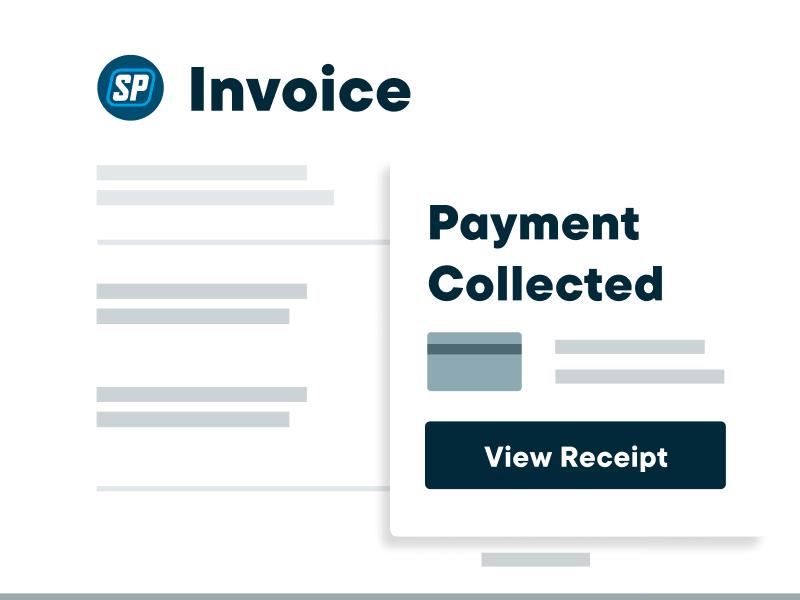Free Handyman Invoice Template
Ready to save time making invoices from scratch? Use this free handyman invoice template to automatically create and download a custom invoice for any job. Just add your company and client information to our free invoice generator, then download a clean, professionally designed invoice as a PDF that’s easy to send to clients.

Create an invoice fast with our free handyman invoice generator
- Stay organized and include all necessary information
- Look more professional than handwritten invoices
- Get paid the proper amount, faster
- Track rates, prices, hard costs, expenses, and accounts receivable
- Protect your business with payment terms and conditions
- Make filing easier with digital copies of all invoices
- Keep your business running efficiently and consistently
Save your custom Invoice Template
Looking for an industry-specific invoice?
- Appliance Repair Invoice Template
- Carpet Cleaning Invoice Template
- Cleaning Invoice Template
- Commercial Cleaning Invoice Template
- Construction Invoice Template
- Contractor Invoice Template
- Drywall Invoice Template
- Electrical Invoice Template
- Flooring Invoice Template
- Handyman Invoice Template
- HVAC Invoice Template
- Junk Removal Invoice Template
- Landscape Invoice Template
- Lawn Care Invoice Template
- Painting Invoice Template
- Pest Control Invoice Template
- Plumbing Invoice Template
- Pool Service Invoice Template
- Pressure Washing Invoice Template
- Roofing Invoice Template
- Snow Removal Invoice Template
- Tree Service Invoice Template
- Window Cleaning Invoice Template
FAQ
-
When you’re writing the invoice, include a detailed list of the interior or exterior contract work you provided and how much it cost. The customer then receives this document and knows how much they need to pay and by what date.
Here’s what to include on a handyman invoice:
• Invoice number for record-keeping purposes (e.g., Invoice #1001, #1002, etc.)
• Invoice issue date and the payment due date
• Company info (handyman business name, logo, phone number, email, mailing address)
• Client details (name, address, contact details)
• Line items with product and service descriptions (e.g., home repair work, plumbing, electrical work, painting, etc.)
• Costs associated with completing the project (labor costs, materials and quantities, hourly rates, overhead costs, any special discounts)
• Subtotal before taxes, discounts, and service fees
• Total amount owed, including applicable taxes and discounts
• Invoice payment terms (payment instructions, accepted payment methods, late fees, any service warranty disclaimers)
• Personal note thanking the customer for choosing your services
Check out the handyman invoice sample below to see what this handyman invoice template includes:
This handyman invoice template is part of our free Job Toolkit where you can store client information, convert templated handyman estimates to invoices, and get paid for your work. It’s perfect for handyman business owners (like you!) who are used to formatting and editing invoices on paper, or in Microsoft Word, Google Docs, Google Sheets, or Excel spreadsheets. -
Bill and invoice are two terms for the same thing: a document that presents the amount of money a customer owes for handyman services.
The difference depends on whether you’re a buyer (customer) or seller (small business owner). Invoice is the term that service providers use, while a client might refer to that invoice as a bill they have to pay. In other words—a service provider sends an invoice to a customer, and the client receives a bill.
Handyman bills and invoices should include a complete breakdown of all project costs, as well as payment information such as the due date, payment methods, and subtracted deposits. -
Send an invoice as soon as you can after the job is complete—ideally, less than 48 hours after finishing a handyman job. Sending invoices late can lead to confusion and delay you from getting paid. Just make sure you and your client agree that the job is done!
-
Clients should pay their handyman invoices within two weeks of the service date. You can try out different payment deadlines and see what works best for your handyman business’s cash flow, but within 30 days is usually best.
Some handymen like to accept a deposit beforehand, and final payment the day of the service. You might want to offer financing to your customers to get partial payment up front and make your high-ticket services more affordable, like tiling or home upgrade projects. -
Jobber’s handyman invoicing software makes it easy to create, send, and track invoices online from your desktop or mobile device. Automatically convert job details into customer-friendly handyman invoices, follow up on overdue payments, and get paid faster. Jobber also helps you spend less time on admin work like estimating, scheduling, time tracking, and other details that keep your handyman business running smoothly.
Here’s what you can do with handyman invoicing software:
• Create professional invoices that feature your logo and handyman company branding
• Automate invoice follow-ups with customized emails and texts
• Send multiple handyman invoices at once with batch invoicing
• Set reminders to invoice after each visit, or create a custom reminder schedule
• Keep track of which handyman jobs have and haven’t been invoiced
• See which invoices are paid, awaiting payment, and past due
• Communicate with clients using email and SMS
• Get paid faster with credit card processing and consumer financing options
• Schedule teams, route work, and track time and expenses
Learn more about how Jobber can help you create invoices and get paid faster.
Over 200,000 home service pros in 50+ industries trust Jobber
“If you can make a quote on the spot, you’re 10 steps ahead of the competition.”
Jobber changed the game because it’s right at people’s fingertips.

